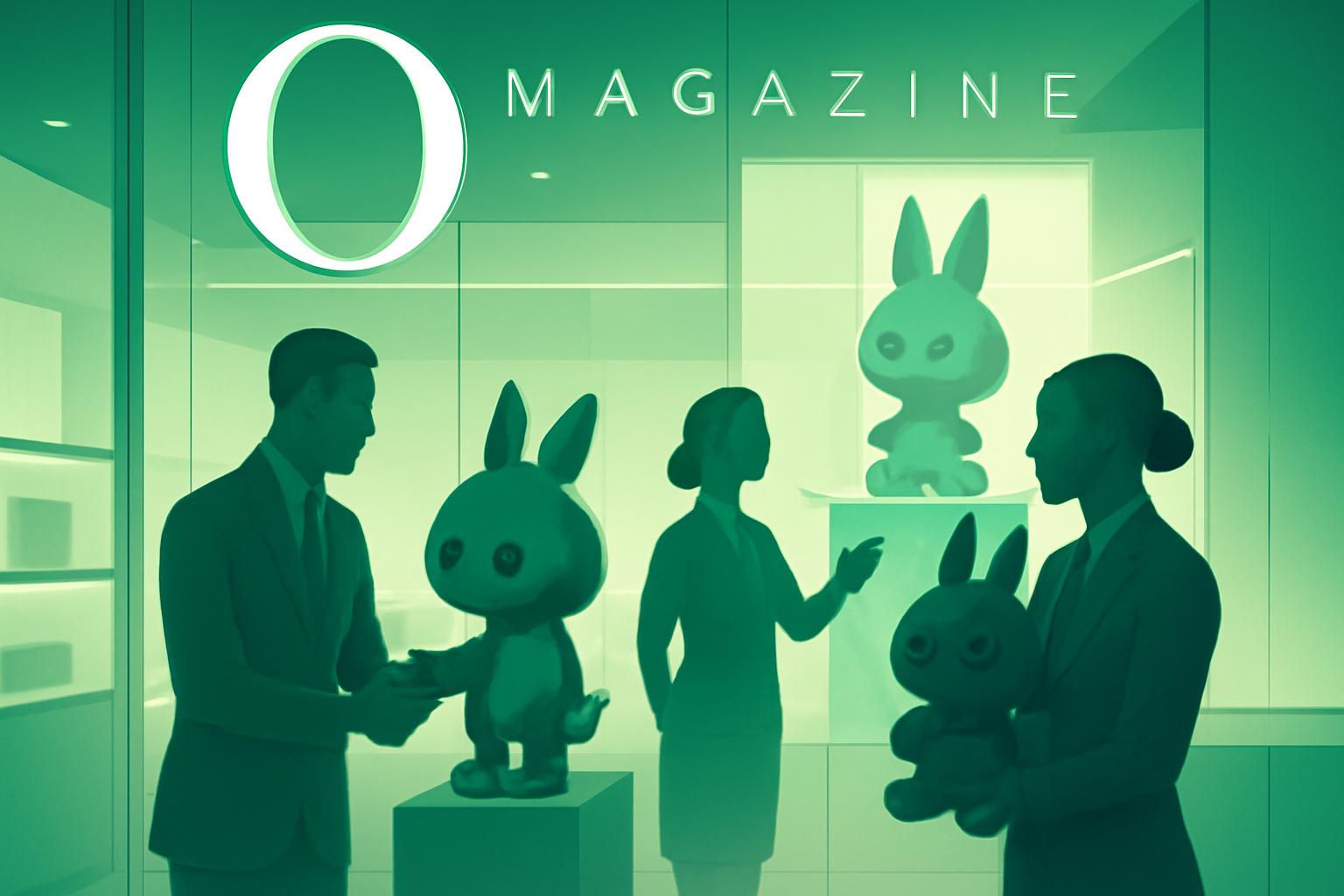Labubu Craze Captivates Luxury Fashion
Labubu dolls, distinctive plush toys resembling rabbit-like monsters with jagged teeth, have rapidly become a coveted accessory within luxury fashion circles. Celebrities such as Blackpink’s Lisa have been spotted pairing these collectible figures with high-end bags from Louis Vuitton and Hermès, fueling demand across social media and fashion events. Priced modestly at $27, Labubu blind box toys often resell at significant premiums, illustrating their status as an affordable yet desirable symbol among younger consumers. Luxury brands are now exploring whether this enthusiasm can translate into willingness to pay premium prices for exclusive collaborations.High-End Collaborations Drive Labubu’s Popularity
In June, a collection of 14 customized Labubus featuring designs by Carhartt and Sacai fetched $337,500 at auction, with one piece selling for $31,250. Similarly, tennis star Naomi Osaka showcased crystal-encrusted Labubu dolls costing approximately $500 from A-Morir at the U.S. Open, highlighting the trend’s crossover appeal. Looking ahead, Parisian maison Moynat will release a limited collection of handbags, leather accessories, and bag charms featuring Labubu and two other characters by Kasing Lung, the artist behind Labubu. Moynat’s monogrammed canvas totes start at $2,150, while bag charms retail for $450, reflecting a clear move toward luxury price positioning.Emotional Value and Cultural Relevance at the Forefront
Luxury brands from Tiffany to Loewe have increasingly incorporated beloved characters such as Pikachu and Totoro to engage digitally savvy, younger audiences. These collaborations not only generate buzz but can also yield substantial returns, as demonstrated by Omega’s “Silver Snoopy” Speedmaster watches, which have appreciated significantly in secondary markets.“Cute is not trivial. It is strategic,” said Jeff Lindquist, managing director and partner at Boston Consulting Group, emphasizing the importance of such collaborations in driving brand visibility and desirability on platforms like TikTok.
Contents
Labubu Craze Captivates Luxury FashionHigh-End Collaborations Drive Labubu’s PopularityEmotional Value and Cultural Relevance at the ForefrontGen Z’s Search for Identity and Emotional ConnectionStrategic Experimentation Through Capsule CollectionsMarket Outlook and Consumer SentimentFinOracleAI — Market View
Gen Z’s Search for Identity and Emotional Connection
Gen Z consumers are redefining luxury, prioritizing personal identity and emotional resonance over traditional notions of craftsmanship and status. Lindquist highlighted this shift, stating that younger buyers view luxury items as reflections of their beliefs and values. Daniel Langer, professor of luxury strategy at Pepperdine University, compared the appeal of characters to celebrity endorsements, noting that these figures come with built-in fan bases that amplify their marketability. Limited availability and the thrill of collecting enhance desirability. Moynat’s Labubu collection will be sold exclusively at select boutiques, encouraging personal storytelling and exclusivity among buyers.Strategic Experimentation Through Capsule Collections
Consultant Alexander Thiel emphasized that collaborations provide luxury brands a license to experiment with unexpected designs, enabling them to reach new audiences without diluting their core identity. However, caution remains necessary. Thomai Serdari, marketing professor at New York University, warned that such ventures must align with brand identity to avoid alienating traditional customers. Loewe’s successful collaborations with Studio Ghibli serve as an example of thoughtful brand evolution under LVMH’s stewardship. Serdari also noted the risk of fleeting trends, pointing to recent volatility in Pop Mart’s stock, the manufacturer behind Labubu dolls. Despite recent declines, analysts remain optimistic given ongoing collaborations with major brands.Market Outlook and Consumer Sentiment
Thiel interpreted the Labubu phenomenon as a consumer response to widespread economic uncertainty, with many seeking comfort in playful, wholesome motifs amid anxiety.FinOracleAI — Market View
The integration of Labubu and similar character-driven collaborations signals a strategic pivot in luxury marketing, targeting younger demographics through emotional engagement and digital culture relevance. While the trend offers growth potential, brands must balance innovation with authenticity to maintain core customer loyalty.- Opportunities: Expanding consumer base by appealing to Gen Z’s values and identity expression.
- Opportunities: Leveraging social media virality to enhance brand visibility and desirability.
- Opportunities: Creating collectible, limited-edition products that drive exclusivity and premium pricing.
- Risks: Potential alienation of traditional luxury consumers if collaborations stray too far from brand heritage.
- Risks: Dependence on short-lived trends risking rapid decline in consumer interest.













